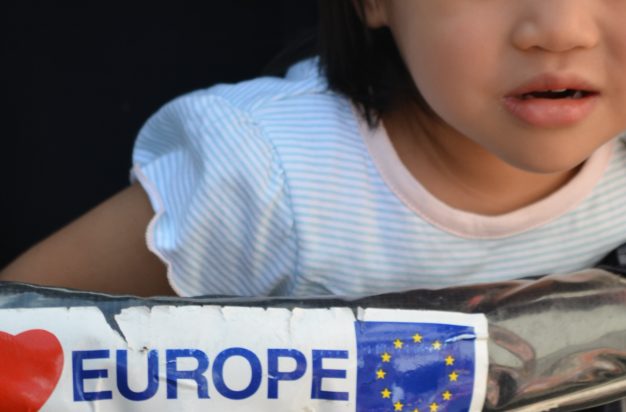
‘Millions of EU children face increasing risks of poverty and poor mental health
Millions of children across the European Union face an increasing risk of poverty and poor mental health.
That is the chilling conclusion of the UN children’s charity UNICEF in its newly-published report, The State of Children in the European Union 2024.
“Rapidly developing new technology is exposing them to risks, but also tremendous benefits if managed properly and children are empowered with digital skills and literacy.”The report notes that more than 11 million children and young people across the EU have mental health conditions. Teenagers are the most likely to experience mental health conditions, including anxiety and depression, affecting a fifth of 15-to-19-year-olds.
While there is a major shortage of EU-wide data on mental health, the report notes that multiple countries have seen an increase in mental health problems among European youth during and since the COVID-19 pandemic.
Nearly 1 in 20 children are exposed to high levels of pesticide pollution, which can be particularly damaging to children and has been linked to detrimental health effects and developmental delays. The report also notes that there were 472 deaths of children and young people in the EU due to air pollution in 2019, the most recent year data are available, the large majority of whom were under one year old.
While creating many opportunities for children and young people, rapid developments in digital technology are exposing children to abuse, including hate speech, cyberbullying and sexual exploitation. The report highlights that 1 in 8 children as young as 12-years-old regularly receive unwanted sexual requests online.
‘472 deaths of children and young people from air pollution in 2019’
UNICEF has published the report ahead of the European Parliament elections in June, after which a new five-year political cycle will commence, to inform the EU’s vision for children and future generations – in particular the most vulnerable and disadvantaged, including children with disabilities, those living in poverty, refugee and migrant children, and groups facing discrimination.
The report and accompanying policy briefs, also published today, feature latest available data and outline a series of recommendations to the EU:
- Safeguard and accelerate recent progress on children’s rights and increase investment in critical services for children.
- Strengthen governance for children. The impact on child rights and future generations should be systematically considered in all EU policy making and legislation. The EU must improve its evidence base with a new EU data collection strategy that includes children.
- Act on key leveraging points that impact child poverty, including the implementation of the European Child Guarantee across the EU.
- Adopt a comprehensive multi-year, multi-sectoral mental health strategy which is costed and resourced.
- Assess the impact of the Green New Deal on children’s health and well-being to inform environmental legislation and policies.
- Update and enforce legislation to promote the safe use of digital technologies by children, address the digital divide and promote digital skills.
“The EU is one of the most prosperous regions in the world, yet high rates of poverty and social exclusion, mental health problems, exposure to pollution, and numerous risks online are depriving millions of children of opportunities, and undermining the potential of the EU’s youngest generation,” said Bertrand Bainvel.
“It’s vital the EU builds on its recent achievements in the promotion of child well-being, including the adoption of the EU Strategy on the Rights of the Child in 2022 and the European Child Guarantee,” added Bainvel.
“The EU has taken great pride in championing children’s rights over the years – these rights are as relevant as ever in helping its institutions respond to the challenges and crises facing children today, from climate change to mental health, the cost of living to digital transformation,” he concluded.




